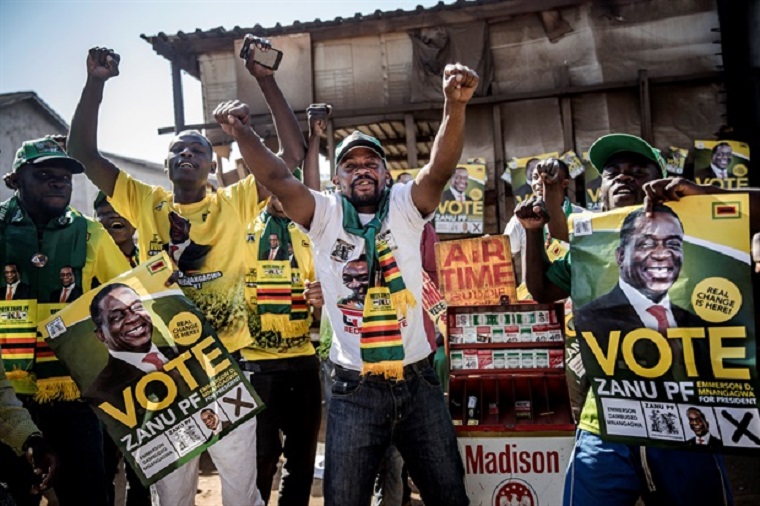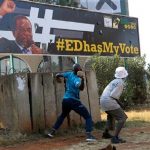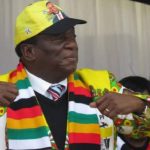The Presidential ballot is only different in that the 23 Chief Election Agents for the 23 Presidential Candidates have to be satisfied (at the National Command Center) that all the Constituency returns were properly completed and signed by their agents. Until this verification process is completed the counting cannot start. In this case the process took forever and led to street riots and the shootings on the streets of Harare.
But once complete, the tallying took place and in the end, 4 days after poll itself, the results were announced – Mnangagwa with 50,8% and Chamisa just over 44%. The rest the anticipated 5 per cent. The Constitution says 50% plus one vote so the new President of Zimbabwe, now properly elected, is Mnangagwa.
The outcry that followed is understandable because in the past the ZEC has been totally partisan and in 2008 when Morgan Tsvangirai won by a clear majority, they spent 5 weeks trying to falsify the results with no success because the tallying system at the Constituency level held sway. Eventually they just closed their doors and announced that no one had a majority and ordered a rerun. They simply falsified the ballot and burned the papers afterwards. Had they done their job properly Morgan would have been our President for the past ten years and what a different country this would have been.
In this case, Zanu recognized that they had to have an election that was credible and that could not be challenged. It was a huge risk for them because they knew that they carried the baggage of 37 years of Mugabe dictatorship and a deeply divided Party at all levels. It was the President who took the decision to proceed despite the risk and the end result was an election campaign that was open and free to all contestant’s. The playing field was not level in any way – Zanu had ample resources, the MDC Alliance none until late in the campaign. Zanu had total control of the media and used it, they also controlled the access to State resources and used that on a huge scale. But they did not attempt to falsify the results when they came in and survived by the skin of their teeth.
Because the Constituency results are not, by and large, contested, the Presidential ballot will stand up to challenge and I am sure that this has been done. Any legal challenge should therefore be short lived. The BIG challenge facing Emmerson Mnangagwa is now to unite the country under his leadership and heal the wounds of past battles – the struggle for Independence, Gukurahundi, when they destroyed Zapu, Murambatsvina when they drove 10 per cent of the population out of the Cities and into the bush with thousands of casualties, the struggle against the MDC since 2000 with 5000 abductees, tens of thousands beaten and tortured, hundreds of deaths and the near total destruction of the economy, all in the name of fighting the restoration of real democracy.
He also has to heal the wounds in his own, Party Zanu PF, which has been torn apart by the internal conflicts of the past five years. Only once he has done all of that can he turn to the future and here he faces equally daunting problems – the huge fiscal deficit, the bloated civil service, the corrupt cartels and individuals that infest the whole State system, the broken local government system and collapsed agriculture. However, the most important aspect at this stage is how the 46 Observer Missions view the final outcome. The new Government needs legitimacy and international recognition to make progress in tackling its Mugabe legacy problems.
At this moment I think he will get just that, with serious reservations, but it should be enough.
Today I remember Morgan Tsvangirai and his 25 years struggle to restore democracy to Zimbabwe. We are not there yet, but 2018 has been a huge step forward and this process is not reversible. Zimbabwe is on the road to a very different future.
Eddie Cross
Harare, 3rd August 2018
(649 VIEWS)


